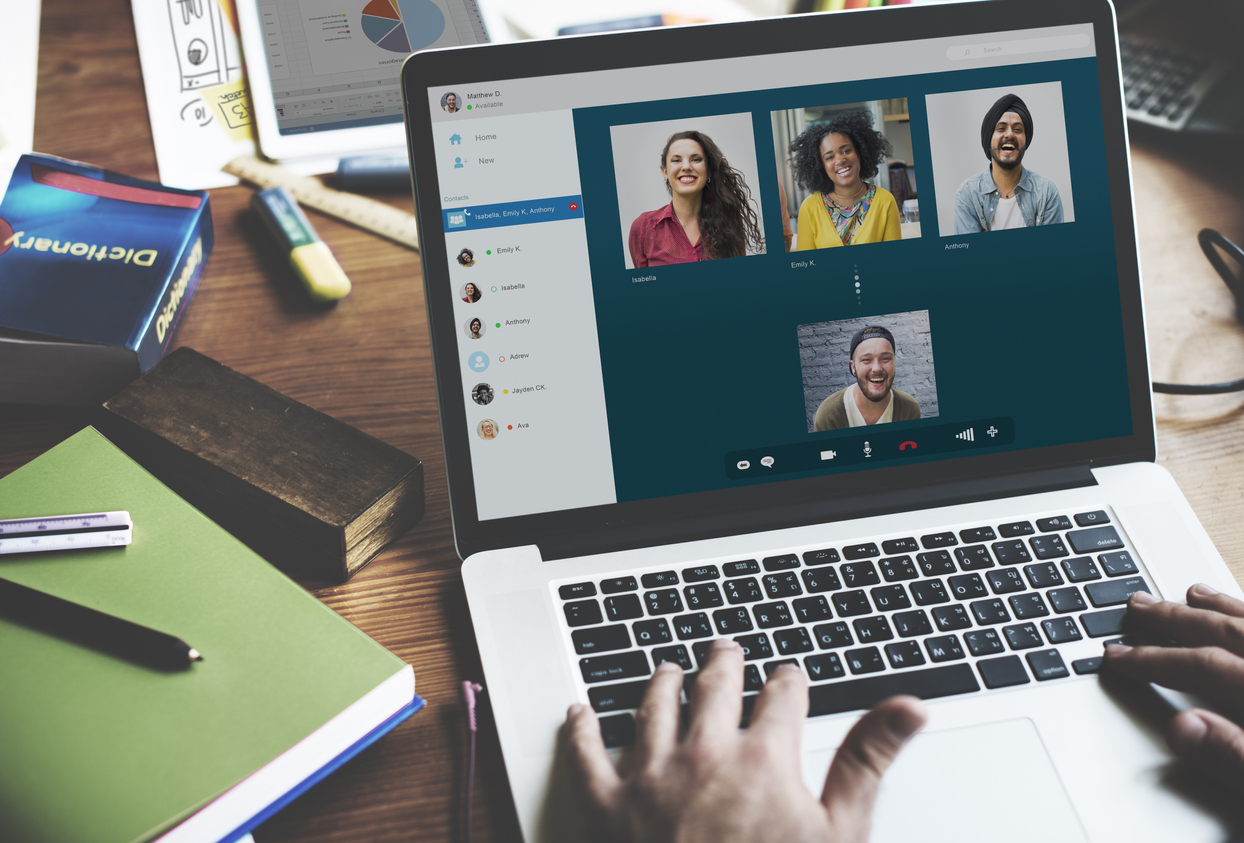The daily uncertainty of group gatherings is not only changing how communities interact but how businesses interact with their customers and prospects. Companies have to figure out how remote workforces work and also how to shift from marketing to clients or employees during live, in-person events to virtual activations. Many companies, large and small, that are dependent on hosting or attending in-person trade shows must adjust to the new ‘norm’ of digital events.
We know many leaders are struggling with new platforms and creating content so we spoke with Torsten Raak and Terri McTaggart from el-j, an experiential storytelling and event production company. They are advising their clients to expect all events will go digital through the end of this year, even if there is a small in person element that sits alongside. Here are a few things they advise to ease the switch from in-person to online events and help companies set themselves up for success.
Make sure your objectives are crystal clear
With the challenge around taking an event from a big in-person experience to virtual, the first step in pivoting your approach is to re-evaluate your objectives. Why were you bringing people together? Was it to deliver internal messages to your sales teams or were you launching your newest product line to your customers? No matter what the reason, you still need to get the message out but with online events you will have to complete with more distractions and will have less time to deliver. “To do that,” says Raak, “you have to be really on-point and direct to keep your audience engaged.” If you have 5 hours of in person content, you cannot replicate that with 5 hours of online content. You must be very disciplined about your message, what’s the important takeaways and how to include it.
You’ve got the content, now you need to engage with your audience
When taking your event online, think first about the structure. What would have been an entire day of live sessions should be segmented up, with many breaks. Both Raak and McTaggart suggest breaking up what would have been a full day agenda a few ways. Consider a kick-off all hands session, then offer a selection of more niche content throughout the day, come together again mid-day to check in and then host a keynote – your most interesting content – at the end of the day. You want to motivate people to stay through the entire experience. “It doesn’t mean the rest is boring,” says Raak, “but it is one mechanism to have them come back.”
As for delivery, all things are now possible with technology. You can still host an event that engages your audience. It’s still possible to host a panel – be it virtual. You can also have a lot of transparency with your audience and encourage them to engage with you in the moment.
For their clients, el-j has created what they call Interactive Live Television. Think of a CNBC live news style format with charts and graphs, the ticker style Twitter feed along the bottom and headlines of what’s coming up next.

This format can be supplemented with the creation of a custom microsite and enterprise tech companies are often able to use their existing technology or platforms thus saving cost of the overall experience. “Whatever you decide to do,” adds McTaggart, “make sure you connect the experience from registration to presentation to post-follow up. The entire journey should be reflected in the event theme.”
At the end of the day, we don’t know what the future holds for events but just know that we may be entering the new normal. For the past decade companies were already offering virtual events online for climate and financial concerns. And while we all enjoyed the BBC at-home interview last year, and the unique experience this family had, we know now that THIS is the new normal. Remember, even though you are not meeting in person, putting the human side more front and center is more powerful now more than ever.
Want to learn more how to go to Plan B for your fall events? Reach out to us.
